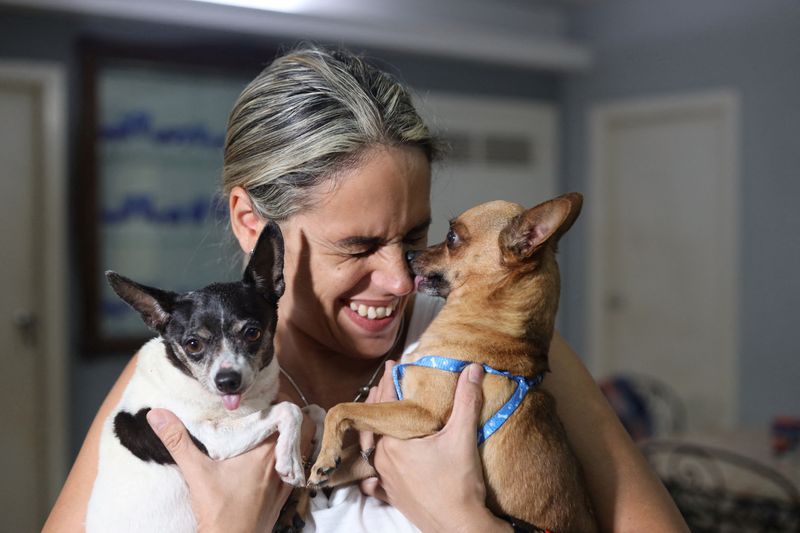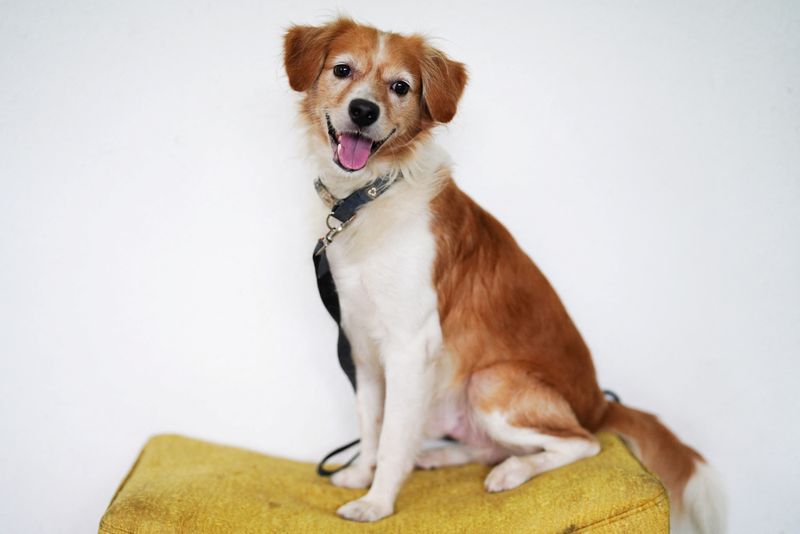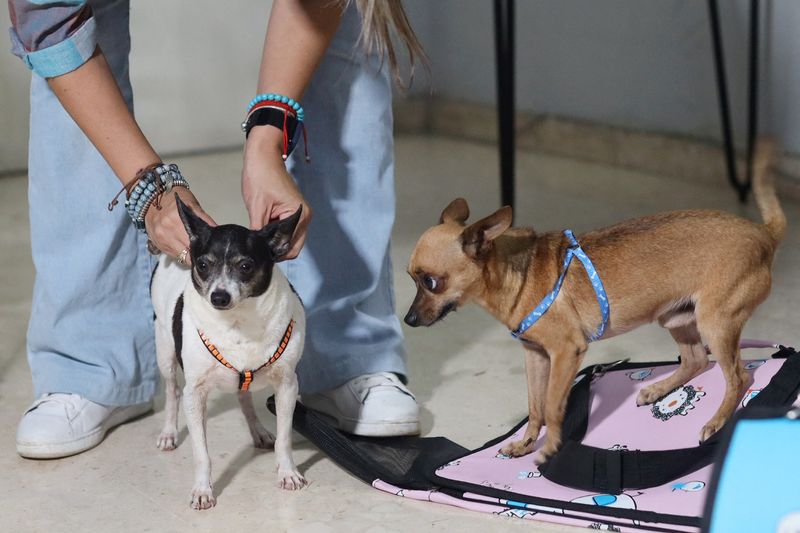By Anett Rios and Alien Fernandez
HAVANA (Reuters) – When Bingo first stepped foot in the airport in Fort Lauderdale, Florida, after months of arrangements ahead of his departure from Cuba, he did what any grateful dog would do: He licked his owner’s face.
The 15-lb (6.8-kg), sandy-haired chihuahua with perky ears was among the lucky ones.
Cubans, pushed by the economic crisis, have left their home in record numbers over the past two years – and increasingly, many now want to bring their dogs and cats, too.
But like their owners, pets seeking to leave the island can face onerous regulations, expenses and logistical issues, said Nathalie Osorio, an animal rights activist who told Reuters she has helped facilitate travel for more than 150 pets.
“There was a lot of misunderstanding at the beginning about the procedures. It has been very cumbersome,” said Osorio, who helped Cuban migrant Karolina Vazquez reunite with her dogs Bingo and Sasha in the United States. “Many of the migrants still cannot come (back to Cuba) and so they rely on third parties to send them their pet.”
Maria Gloria Vidal, a specialist with Cuba’s National Center for Animal Sanitation, told Reuters that the practice is nonetheless booming.
Cuban authorities have issued over 2,000 export certificates for pets thus far in 2023, she said, more than twice as many certificates for the export of pets as the year before.
“Many people think there are complications on the part of Cuban authorities, but that is not the case,” she said. “We have always been willing to collaborate.”
But every country has its own rules around the import of animals, sometimes complicating the process.
The U.S., the top destination for migrants, has placed Cuba on a list of countries with a high risk of dog rabies, adding additional hoops to the process.
Cuba does not have a U.S.-approved laboratory, Vidal told Reuters, which means rabies blood tests must be sent abroad for analysis.
Activists say that despite such hurdles, both migrants and their pets are already reaping the benefits of services designed to help.
“We have even helped puppies left alone in an apartment … with only a distant relative who goes and gives them food then leaves,” said activist Osorio.
“It really has been very gratifying.”
(Reporting by Alien Fernandez and Anett Rios, editing by Dave Sherwood and Sandra Maler)



